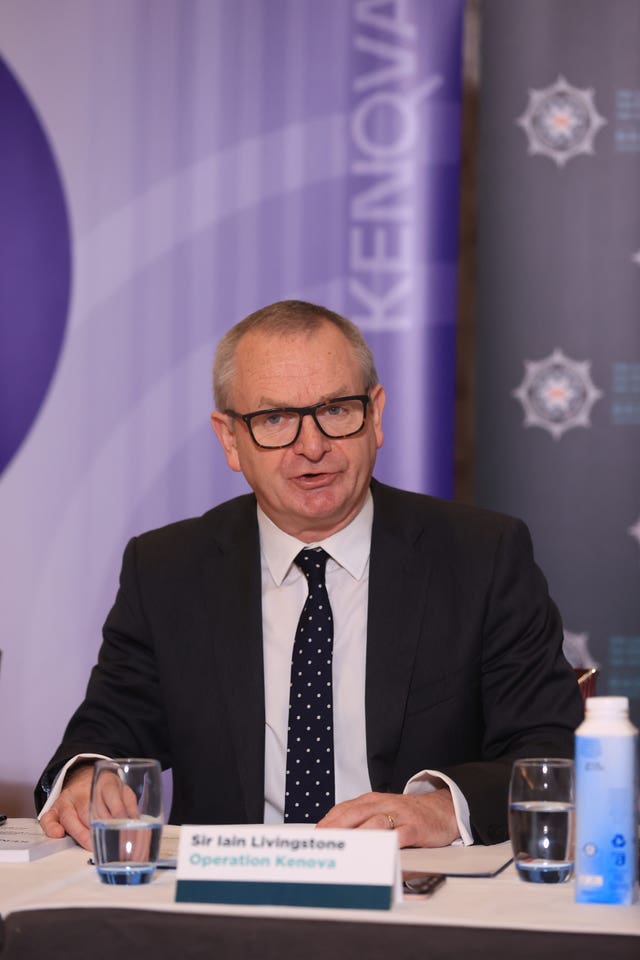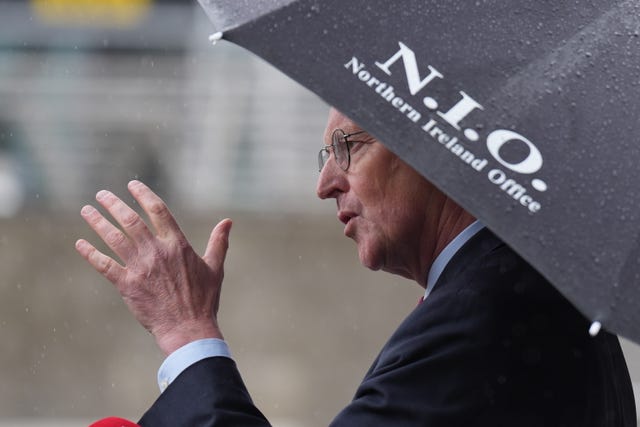The PSNI chief constable has said it is “unacceptable” that MI5 has provided material about an agent operating within the IRA to an investigation team so late.
The chief of the Operation Kenova probe said it appeared the files contain “significant new material which appears to point to new investigative leads not previously known”.
Kenova, a major investigation into the operations of “Stakeknife”, thought to be the British Army’s top agent inside the IRA, published its interim report in April finding that more lives were probably lost than saved by his actions.
Despite the findings, the public prosecutor did not to pursue any cases.
Stakeknife, widely believed to be West Belfast man Freddie Scappaticci, died last year at the age of 77.
It emerged on Wednesday that MI5 handed over previously undisclosed material in April and July, some eight years after the start of the Kenova probe.
In a statement, PSNI chief constable Jon Boutcher said: “It is unacceptable that MI5 continue to provide material to the Operation Kenova Team so long after they undertook to have given full access to Kenova of all the material they held about the agent Stakeknife.
“My interim report highlighted a number of issues in obtaining information from MI5 and I reported the similar experiences of Lord Stevens, Judge Cory and others who each called out the unacceptable practices of those not co-operating with and withholding information from legacy investigations.”

Some 32 people, including former police, ex-military personnel and people linked with the IRA, were considered for prosecution on a range of charges from murder and abduction to misconduct in public office and perjury as a result of the Kenova investigation.
The Public Prosecution Service (PPS) in Northern Ireland found there was insufficient evidence to pursue any cases.
Mr Boutcher said: “The fact that this information continues to be provided to the Operation Kenova team after the Public Prosecution Service have directed on the files submitted to them will cause further upset to the families who had already waited many years to find out what happened to their loved ones.”
The disclosure was made weeks before the introduction of the previous government’s Legacy Act, which would result in the discontinuation of court cases pertaining to Northern Ireland’s troubled past.
Mr Boutcher said that he is concerned about an “unhelpful protectionist approach to disclosure” in relation to Northern Ireland legacy issues from intelligence authorities.
He said this can result “in wild conspiracy theories and inaccurate reporting” about legacy cases.
“During the Troubles the security forces acted with immense bravery and endured huge sacrifices and that should never be forgotten but we must challenge practices that prevent information about Troubles related cases from being released where there is no good reason.”
He added: “I am confident that the officer in charge of Operation Kenova, Sir Iain Livingstone, will ensure all the material is fully assessed and will liaise closely with the Director of the Public Prosecution Service to determine if any further direction is necessary,” Mr Boutcher said.
“I very much look forward to his final report that will comment more fully on these most recent disclosures.
“I want to personally reassure the families who have put their trust in the Operation Kenova that Sir Iain and his team will do everything necessary to analyse the material for any new evidence.”
Sir Iain has written to Northern Ireland Secretary Hilary Benn raising his concern at the late disclosure of material he said may include new investigative leads.
An initial review of the material has been carried out, as well as consultation with Northern Ireland’s Director of Public Prosecutions Stephen Herron.

Sir Ian said: “It is of great concern that further material continues to be given to Operation Kenova by MI5 nearly eight years after Operation Kenova commenced; after all the DPPNI determinations in the prosecution reports have been made; following the publication of the Operation Kenova Interim report; and a matter of weeks before the introduction of the Northern Ireland Troubles (Legacy and Reconciliation) Act 2023.
“I have directed that the new information be analysed and checked for evidence and information that could have assisted both Operation Kenova and the DPPNI in their work, as well as for any implications for the accuracy of the Kenova Interim Report. This work continues.”
Sir Iain said it appears from initial assessment that the files contain “significant new material which appears to point to new investigative leads not previously known”.
“Importantly the material does not indicate further murders of individuals that involved the agent Stakeknife and as such no further deaths would fall into the Operation Kenova Terms of Reference based on the now disclosed material,” he said.
“However, the material does appear to cast doubt on some of the documents and witness evidence obtained by Kenova and some statements made in the Interim Report. This includes information provided by the security service around the dates when they became aware of the agent Stakeknife.”




Comments: Our rules
We want our comments to be a lively and valuable part of our community - a place where readers can debate and engage with the most important local issues. The ability to comment on our stories is a privilege, not a right, however, and that privilege may be withdrawn if it is abused or misused.
Please report any comments that break our rules.
Read the rules here